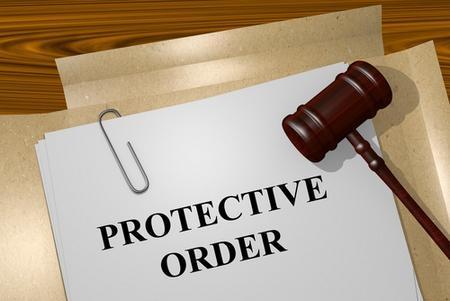
Being accused of violating a protective order can be frightening and overwhelming, especially if you believe you’ve done nothing wrong. The consequences can be swift and serious, even before your side of the story is heard.
In Houston, protective orders are issued by courts to prevent contact between individuals in domestic violence, stalking, or harassment cases. These legal orders can carry strict terms, and a single misstep—intentional or not—can lead to arrest, fines, or jail time. Even actions like sending a text message or being in the wrong place at the wrong time may trigger a violation.
If you’ve been accused, it’s essential to act quickly and strategically. A skilled violation of a protective order lawyer in Houston can assess your situation, explain your rights, and begin building your defense before the case gains momentum. This article will guide you through the immediate steps you should take to protect yourself.
Steps to Take If You’re Accused of Violating a Protective Order
1. Understand What You’re Being Accused Of
The first step is understanding exactly how you allegedly violated the protective order. In Texas, a protective order can prohibit various forms of contact or behavior, including physical proximity, communication, or third-party contact. Violations might involve:
- Showing up at the protected person’s home, workplace, or school
- Sending text messages, emails, or making phone calls
- Contacting the protected party through social media
- Attempting to communicate through mutual acquaintances
Under Texas Penal Code § 25.07, violating a protective order is a criminal offense and can result in a Class A misdemeanor. However, the charge can be elevated to a state jail felony if there are prior violations or if the violation involves violence or stalking.
2. Don’t Ignore the Accusation
Many people accused of protective order violations make the mistake of assuming the matter will resolve itself, especially if the alleged contact was unintentional or minor. Unfortunately, law enforcement and the courts take these accusations very seriously. If you’re arrested or contacted by police, your best move is to remain calm and avoid making any statements until you have legal representation.
3. Gather Evidence and Document Your Side
Protecting yourself starts with documentation. If you believe the accusation is unfounded or the result of a misunderstanding, begin collecting evidence immediately:
- Save all messages, emails, or call logs
- Document your whereabouts at the time of the alleged violation
- Gather witness statements if others were present during the incident
- Take screenshots of social media interactions, if relevant
This evidence can become crucial in building a defense, especially in cases where there’s little physical proof and it’s one person’s word against another’s.
4. Understand the Consequences of a Violation
The penalties for violating a protective order in Houston—and across Texas—can be harsh. A Class A misdemeanor conviction may result in:
- Up to one year in jail
- Fines of up to $4,000
- A permanent criminal record
If the violation involves acts of violence, stalking, or repeated violations, the case may be prosecuted as a felony. Felony charges carry much more severe consequences, including longer prison terms and loss of certain civil rights.
Additionally, a conviction can impact family law cases, such as custody battles, and may lead to complications with employment, housing, and professional licensing.
5. Avoid Further Contact at All Costs
One of the most critical mistakes someone can make after being accused is to try to reach out to the protected person to “clear things up.” Even if they initiated the contact, any response from you can be seen as a violation.
Protective orders are court-issued mandates. Only a court can modify or dissolve them, not the person protected by the order. Until that happens, you must comply strictly with the terms. This includes avoiding all direct and indirect contact, even if emotions run high.
6. Prepare for Court
If you’re facing charges, you will likely need to attend a court hearing. Come prepared. Dress appropriately, arrive early, and speak only when addressed by the judge or your attorney.
Your legal team may argue that:
- The contact was accidental or incidental
- The accusation is false or retaliatory
- The protective order was unclear or improperly served
- The protected person initiated the contact
Each of these defenses requires a thoughtful legal approach supported by facts and documentation.
Final Thoughts
Facing allegations of violating a protective order in Houston is a serious legal challenge. The legal process can move quickly, and missteps early on can complicate your case. By staying informed, documenting everything, and respecting the terms of the order, you can help protect your rights and prepare for a strong legal defense.